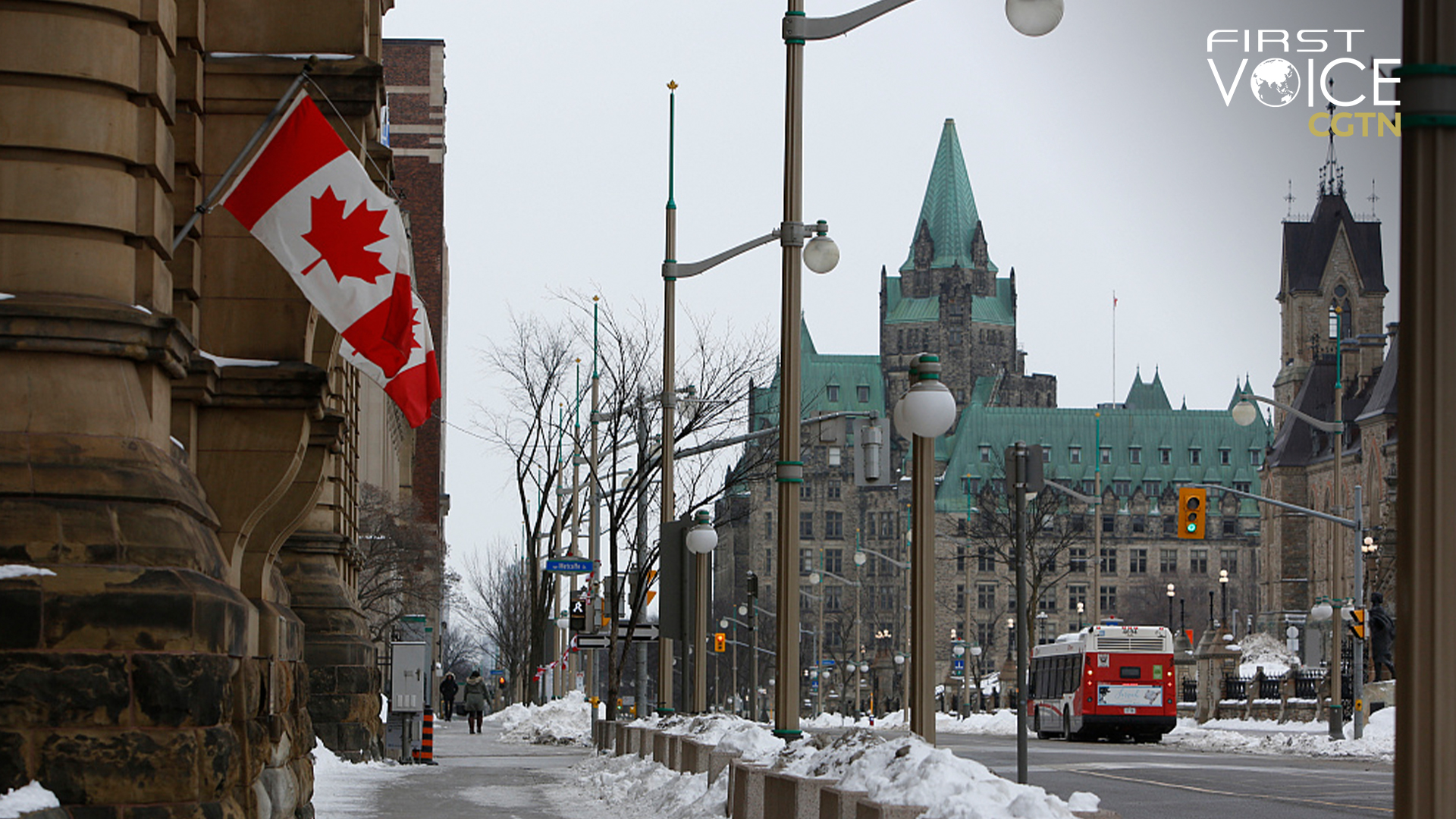
Editor's note: CGTN's First Voice provides instant commentary on breaking stories. The column clarifies emerging issues and better defines the news agenda, offering a Chinese perspective on the latest global events.
Apparently, Canada has many free frigates to spare.
According to the Financial Times, Canada is planning to deploy more warships through the Taiwan Straits. The Canadian Foreign Minister Melanie Joly said in an interview that "we will continue to enforce the international rules-based order when it comes to the Taiwan Strait. And that's why also we had a frigate going through the Taiwan Strait this summer, along with the Americans, (and) we are looking to have more frigates going through it." "We need to make sure that the question of the Taiwan Strait is clear and that it remains an international strait," Joly said.
The "boldness" exhibited in Joly's statement indicates that it has backup. The Canadian frigate sailed through the Taiwan Straits along with Americans vessels, and Canada has always relied on the U.S.'s protection, using the U.S. as its shield to hide behind. In the NATO Foreign Ministers' meeting held a week ago, U.S. Secretary of State Antony Blinken said that the alliance is concerned by China's "rapid, opaque military buildup" and that they need to make sure that "we are working to adapt in concrete ways to meet the challenge." It is also reinforced by Canada's recently released new Indo-Pacific strategy where the language and the objectives resemble America's language on the matter.
Just like the Taiwan issue has been a chess piece on U.S.'s geopolitical board, so is Canada's rushed decision to join in.
When push comes to shove, the United States doesn't hesitate to sacrifice these pieces to protect itself. A most recent demonstration would be the Inflation Reduction Act that's drawing ire from its supposed "allies." French President Emmanuel Macron called it "super aggressive" and characterized the legislation as "perhaps fix your issue but you will increase my problem." A Wall Street Journal article referred to a quote by a Canadian Manufacturers & Exporters official: "The U.S. has turned on a shop vac to suck up incentives and we're standing here with a dust buster." The Canadian Steel Producers Association warned that American steel producers could benefit without incurring carbon costs.

A customer shops at a supermarket in Washington, D.C., the United States, on Oct. 28, 2022. [Photo/Xinhua]
When facing soaring inflation, the U.S. could disregard its allies' interests, harming them in exchange for peace at home. What's going to happen when the Taiwan issue becomes too onerous for the U.S., forcing it to preserve its strength? What would happen to Canada? The Taiwan issue is one of the most sensitive and fundamental issues in any country's relationship with China. Canada would rue the day that it decides to step up its involvement.
As its neighbor and the most powerful country in the Western hemisphere, it's understandable that the U.S. holds great sway over Canada's foreign policy. After all, the famous North American Aerospace Defense Command or NORAD is responsible for protecting air defense for both the continental U.S. and Canada. On paper, it's a combined organization. But it's headquartered in Colorado, the U.S., commanded by the person who's also serving as commander of the U.S. Northern Command.
Nevertheless, it's not in Canada's interest to kowtow to America's every whim. As the Huawei CFO Meng Wanzhou's saga has demonstrated, following U.S.'s orders could leave Canada a mess that will take years to clean up. When China and the U.S. settle into an equilibrium, Canada is the one left in the wind. All its muscle-flexing would've meant nothing but trouble for itself.

 中文
中文



